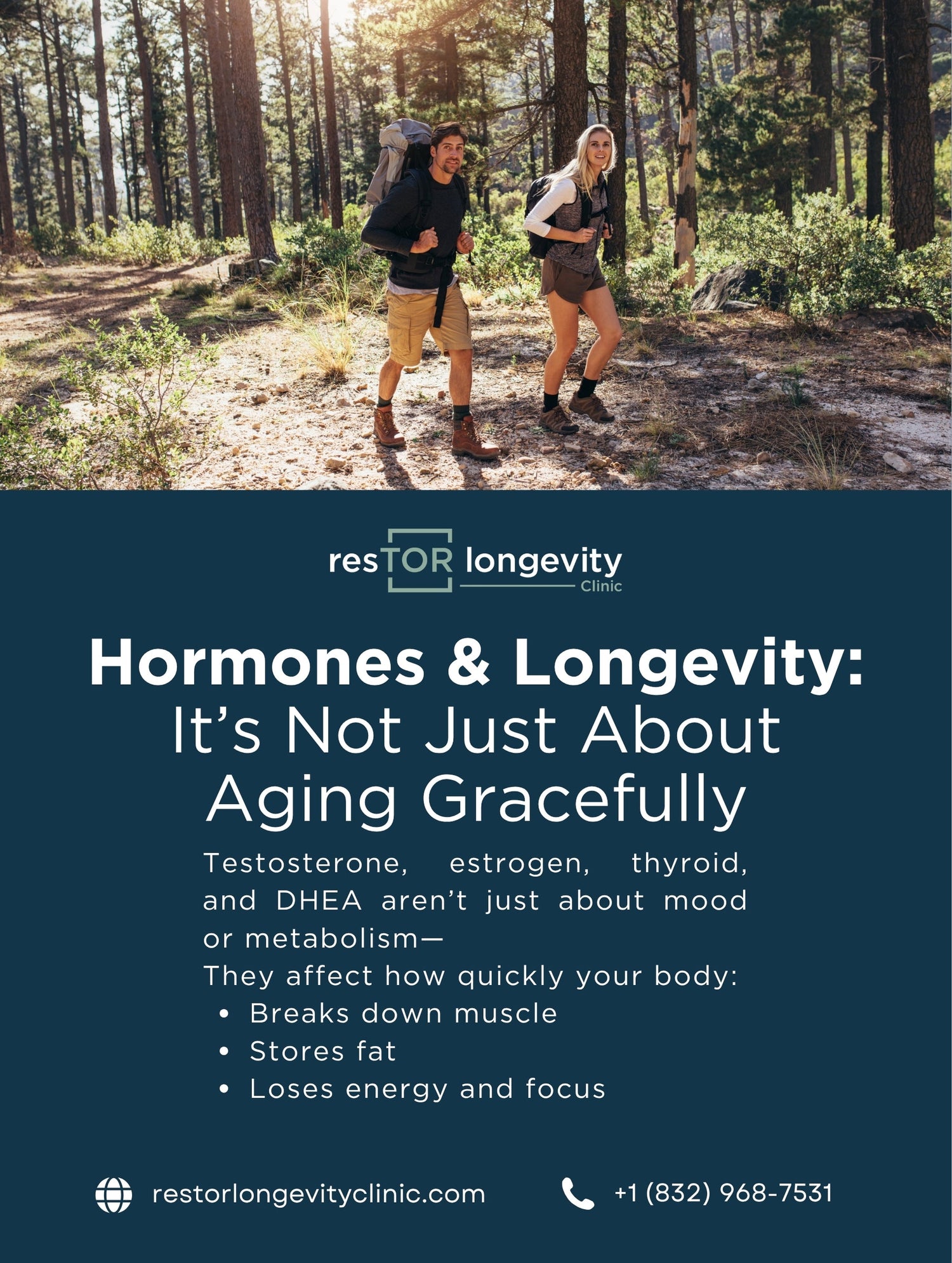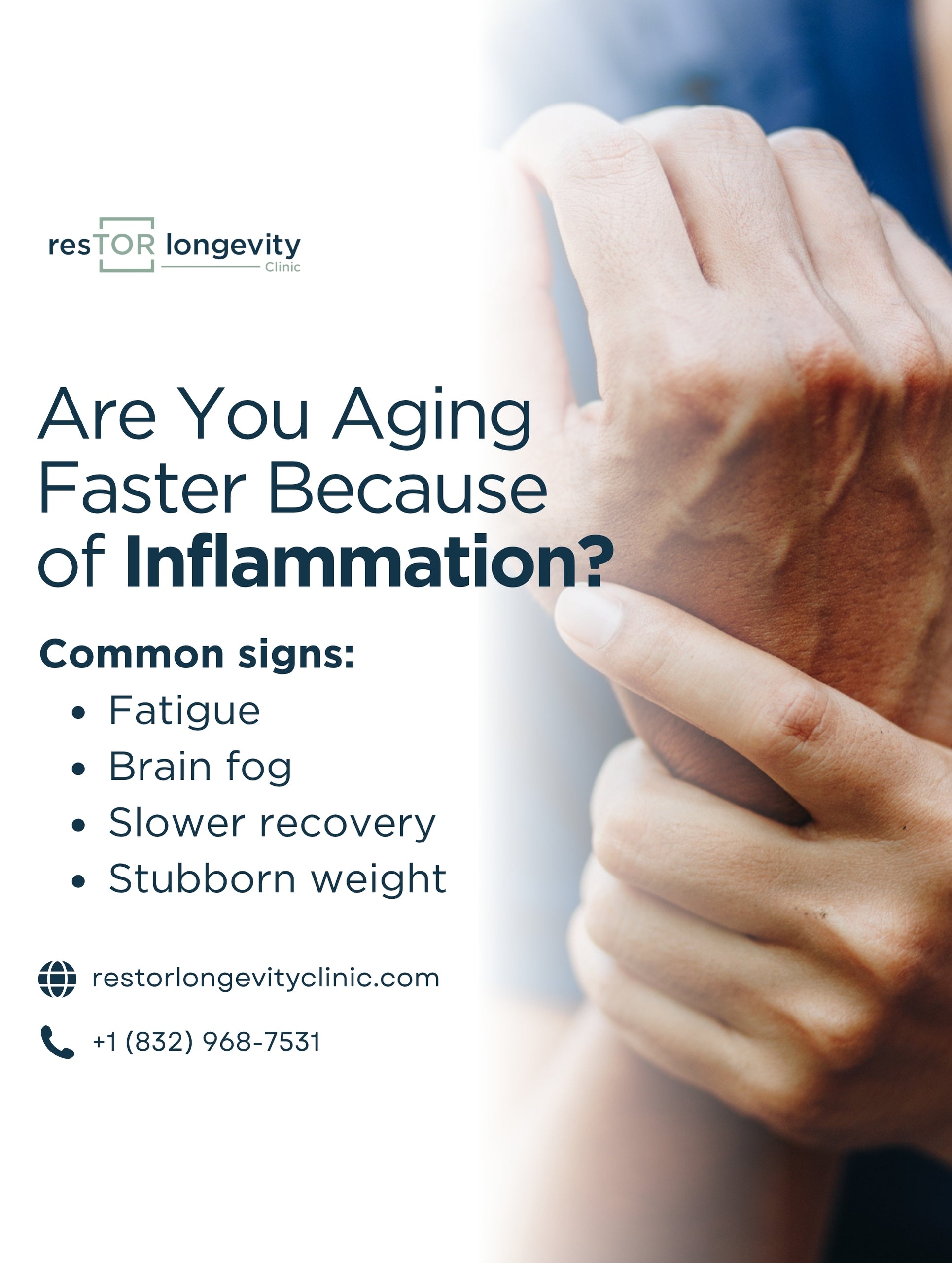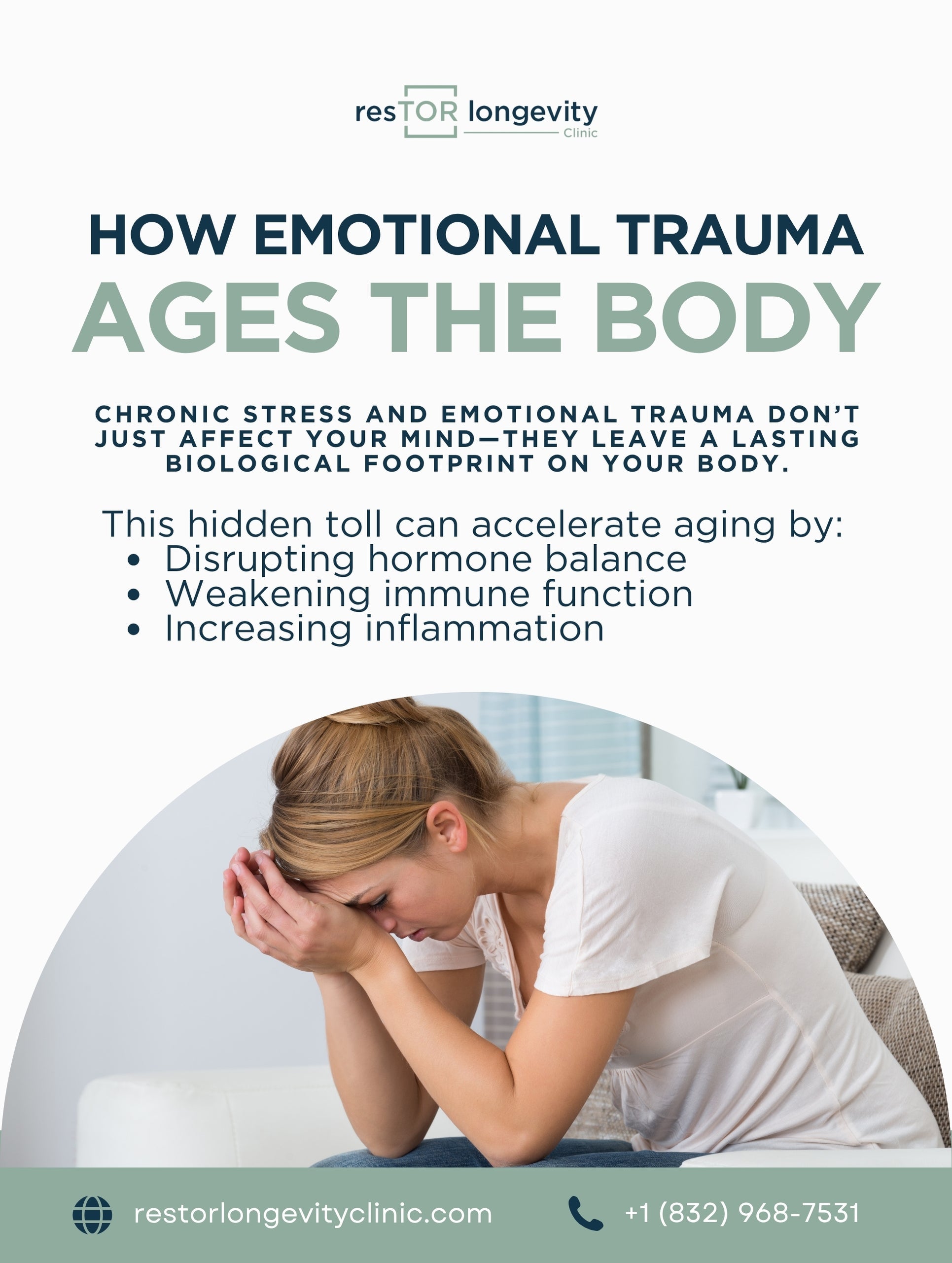Did you know that approximately 15% of the population suffers from hormonal imbalances at some point in their lives? This often-overlooked aspect of health significantly impacts longevity and wellbeing. Exploring the connection between hormones and longevity is crucial for anyone seeking a longer, healthier life. In this comprehensive blog post, we'll delve into how hormones like testosterone, estrogen, thyroid hormones, and DHEA play pivotal roles in aging and vitality. Get ready to discover practical insights into reclaiming your health and optimizing your hormones for a vibrant life.
The Critical Role of Hormones in Aging and Longevity
Hormones are the body’s chemical messengers, orchestrating vital functions from metabolism and growth to mood regulation. As we age, hormone production can decline, significantly affecting our overall health and wellness. Understanding these changes is essential for anyone who wishes to age gracefully and maintain their vitality.
1. Understanding Hormones: What Are They?
At the most basic level, hormones are substances produced by glands in the endocrine system. They travel through the bloodstream, signaling various organs and tissues to perform specific functions. Here’s a closer look at some of the main hormones relevant to longevity:
- Testosterone: Often considered the male hormone, testosterone is essential for both males and females. It influences muscle mass, bone density, and emotional health. A drop in testosterone levels can lead to fatigue, weight gain, and mood swings.
- Estrogen: Known primarily as a female hormone, estrogen plays a vital role in bone health, cardiovascular health, and cognitive function. A decline in estrogen, particularly during menopause, can lead to various health issues, making it essential to monitor levels closely.
- Thyroid Hormones: Thyroid hormones are critical for regulating metabolism, energy levels, and overall metabolic health. An imbalance can lead to weight gain, energy depletion, and cognitive decline.
- DHEA (Dehydroepiandrosterone): This hormone serves as a precursor to both testosterone and estrogen. It plays a role in muscle development, immunity, and overall vitality. DHEA production declines with age, and optimizing its levels can significantly impact health and longevity.
2. Symptoms of Hormonal Imbalances
Hormonal imbalances can manifest in various ways, and recognizing these symptoms is key to addressing them effectively. Some common signs include:
- Fatigue and Low Energy: Feeling constantly tired despite sufficient rest can indicate hormonal decline, especially in testosterone and thyroid hormones.
- Weight Gain or Difficulty Losing Weight: Hormonal changes can lead to shifts in how your body metabolizes and stores fat, often resulting in weight gain.
- Mood Swings and Irritability: Hormones like estrogen and progesterone affect mood, and fluctuations can lead to anxiety, depression, or irritability.
- Loss of Muscle Mass: A decline in testosterone levels can impact muscle preservation, leading to an increase in body fat and decrease in muscle mass.
3. The Impact of Hormones on Longevity
Research increasingly links hormonal health to longevity. Optimizing hormonal balance can lead to improved metabolism, enhanced cognitive functions, and increased overall health span. Here’s how:
- Cellular Repair and Maintenance: Hormones like testosterone promote cellular repair processes, contributing to longevity at a cellular level.
- Metabolic Health: Hormones regulate how your body uses energy. Proper hormonal balance can help maintain a healthy weight, energy levels, and metabolic rate.
- Cognitive Function: Hormonal health can directly influence brain health. Estrogen, for example, has neuroprotective effects that may protect against cognitive decline.
4. Practical Steps to Optimize Hormone Levels
Understanding the importance of hormonal balance is just the beginning; taking action is crucial. Here are actionable strategies to optimize your hormone levels:
- Regular Exercise: Incorporating strength training and cardiovascular exercises can naturally boost testosterone and balance other hormones.
- Balanced Nutrition: A diet rich in essential nutrients, including healthy fats, proteins, vitamins, and minerals, plays a vital role in supporting hormonal health. Foods high in omega-3 fatty acids, lean proteins, and fiber can significantly benefit hormone levels.
- Adequate Sleep: Lack of sleep can negatively impact hormone production. Striving for 7-9 hours of quality sleep is crucial for optimizing hormones.
- Stress Management: Chronic stress leads to elevated cortisol levels, negatively impacting other hormones such as testosterone and DHEA. Techniques such as meditation, yoga, and deep breathing can effectively lower stress levels and improve hormonal balance.
- Regular Health Assessments: Engaging in periodic health assessments, like those offered through comprehensive health panels, can reveal a lot about your hormone levels and overall health status. Regular assessment ensures early detection of hormonal imbalances, allowing for timely intervention.
5. Advanced Options for Hormone Optimization
Many people may benefit from consulting wellness professionals who specialize in hormonal health. Options for treatment include:
- Bioidentical Hormone Replacement Therapy (BHRT): For those experiencing severe hormonal imbalances, BHRT can help restore hormone levels to more youthful levels, improving quality of life significantly.
- Supplements: Many supplements can help support hormone health. For example, vitamin D, magnesium, and omega-3 fatty acids have all shown promise in maintaining hormonal balance.
- Dietary Adjustments: Some foods have been shown to support hormone production or balance. For example, cruciferous vegetables like broccoli are known to aid in estrogen metabolism.
6. Conclusion: Where Do We Go from Here?
By understanding the vital relationship between hormones and longevity, we position ourselves to adopt actionable steps toward improved health. Recognizing the importance of hormones is crucial as we navigate the complexities of aging. Continually monitoring and optimizing our hormonal health can significantly enhance our quality of life as we age.
To achieve optimal health and longevity, consider scheduling a consultation with a healthcare professional specializing in hormonal balance. Taking these steps today can pave the way for a healthier tomorrow. Remember, aging is inevitable, but thriving at every age is a choice! Let's make the conscious decision to empower ourselves with knowledge and practical strategies for longevity.



